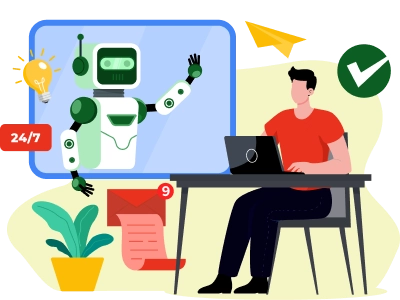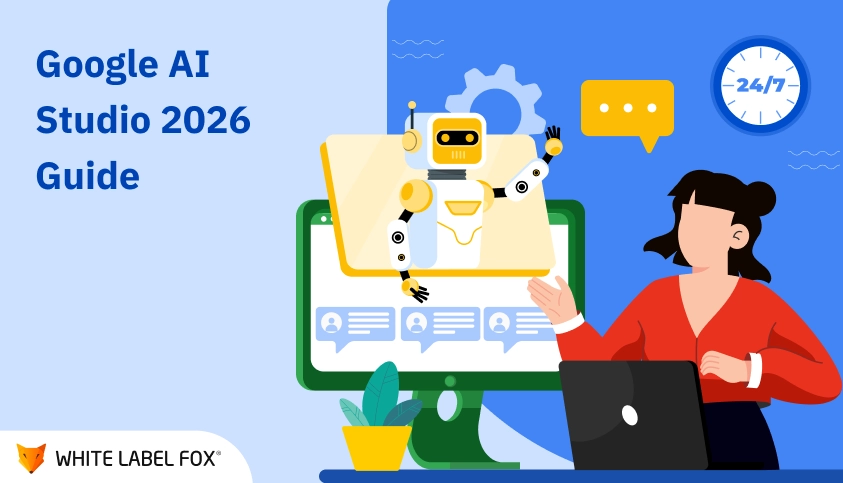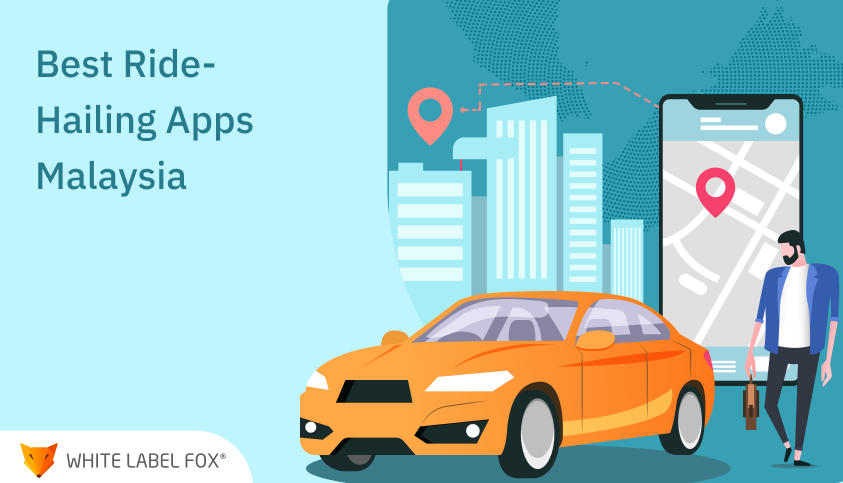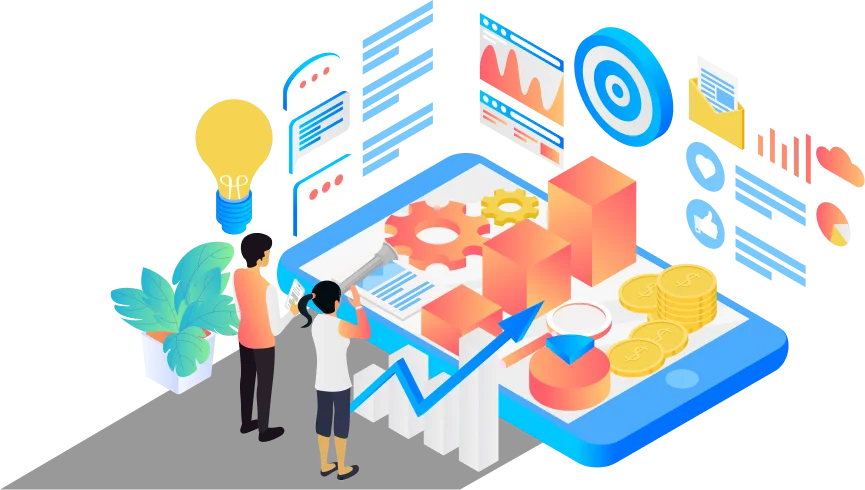Introduction
Artificial Intelligence is no longer an optional technology - it’s a competitive advantage. Over the past few years, the rise of AI-driven productivity platforms has changed how businesses, developers, and creators operate. Among these, Google AI Studio has become one of the most talked-about tools of 2026, empowering users to build and deploy AI-powered applications faster than ever.
Whether you’re a developer fine-tuning Gemini models, a business automating workflows, or a digital creator exploring generative tools, Google AI Studio offers a unified platform that simplifies complex AI tasks.
In this guide, we’ll explore what Google AI Studio is, its core features, real-world use cases, and productivity hacks - showing how it’s shaping the next generation of intelligent applications.
What Is Google AI Studio?
Google AI Studio is a web-based platform developed by Google to help users build, test, and deploy AI applications using the company’s Gemini models and Generative AI technologies. It acts as a collaborative environment where developers and non-technical users can create intelligent chatbots, automation tools, and content-generation systems without needing deep coding skills.
A Brief History of Google’s AI Evolution
Google’s AI journey began years ago with TensorFlow - its open-source machine learning framework. Later came Google Cloud AI, Vertex AI, and Bard, which evolved into a more unified approach. By 2024, Google AI Studio was launched to bridge the gap between developers and generative AI tools.
Today, it integrates seamlessly with Gemini 1.5 and Gemini 2, offering multimodal capabilities (text, image, and code) in a secure environment powered by Google Cloud infrastructure.
Why It Matters
For developers, it removes the friction of model deployment and testing. For businesses, it offers scalability and access to advanced AI features without heavy infrastructure costs. For creators, it’s an AI partner for innovation - helping generate ideas, automate workflows, and bring concepts to life faster than ever.
The Architecture Behind Google AI Studio
Behind Google AI Studio lies an intelligent architecture built for performance, scalability, and data security. It connects Gemini models, Vertex AI APIs, and Google Cloud services into one cohesive environment.
AI Framework: The platform uses Gemini’s multimodal capabilities to handle text, image, code, and even voice inputs, enabling versatile use cases like chatbots, writing assistants, and recommendation engines.
APIs & SDKs: Developers can connect their AI models to third-party apps, CRM systems, or mobile platforms using built-in API endpoints.
Data Security: Enterprise-grade encryption, IAM roles, and compliance with GDPR, SOC 2, and ISO 27001 ensure complete data protection.
Scalability: Whether you’re a startup or a Fortune 500 company, AI Studio’s architecture scales automatically based on compute demand, optimizing costs.
Collaboration: Multiple users can work on the same project, share model outputs, and track revisions within the same environment - all integrated with Google Workspace.
This foundation makes AI app development faster, safer, and more collaborative, supporting real-time model testing and production deployment.
Key Features of Google AI Studio
Model Customization and Fine-Tuning
One of the strongest features of Google AI Studio is the ability to fine-tune pre-trained Gemini models. Developers can feed domain-specific data to improve accuracy and relevance.
Example: A healthcare startup can train a model to understand medical terms and patient queries, enhancing response quality.
Benefit: Businesses gain tailored AI performance without building models from scratch, saving time and cost.
No-Code and Low-Code Interface
Even if you’re not a programmer, you can build AI workflows visually. The drag-and-drop interface makes it possible for marketing, HR, or operations teams to design automation processes - from customer support bots to content-generation assistants.
This democratization of AI has made Google Studio AI accessible to startups and small teams worldwide.
Collaboration and Shared Workspaces
Google AI Studio promotes teamwork with real-time project collaboration, integrated versioning, and shared resources. Developers, designers, and data scientists can co-edit prompts, test models, and exchange results directly from Google Drive or Docs.
Advanced Prompt Engineering Tools
It includes built-in tools for prompt optimization, output evaluation, and testing environments. These help developers understand how their models respond to different instructions and adjust prompts for accuracy and consistency.
Integration with Google AI Productivity Tools
AI Studio is deeply integrated into Google Workspace apps like Docs, Sheets, Gmail, and Slides.
You can automatically generate marketing content, summarize emails, or create reports in Sheets using AI-powered commands - turning everyday tools into AI-driven productivity engines.
Generative AI Tools 2026: Where Google AI Studio Stands
The global AI landscape in 2026 is filled with innovation - from OpenAI GPT-5 and Anthropic Claude 3 to AWS Bedrock and Meta LLaMA 3. Yet, Google AI Studio stands apart due to its tight ecosystem integration and developer accessibility.
Key Advantages Over Competitors
- End-to-End Integration: From model creation to deployment, everything happens within Google Cloud.
- Native Gemini Access: Direct usage of Gemini 1.5 Pro and Gemini 2 models.
- Enhanced Collaboration: Seamless Workspace integration improves team productivity.
- Data Security: Unlike many open platforms, AI Studio inherits Google Cloud’s enterprise compliance.
As enterprises shift toward multimodal and data-driven automation, Google AI Studio is expected to become a central hub for AI innovation.
Real-World Use Cases of Google AI Studio
AI App Development for Startups
Startups use Google AI Studio to prototype and launch smart applications faster.
Example: A logistics startup built a delivery prediction system by combining AI Studio’s data analysis with Google Maps API - improving accuracy by 40%.
Content Creation and Marketing Automation
Marketing teams are using AI Studio to generate ad copies, blog drafts, and social media content. Integration with Gemini models allows contextual creativity, tone matching, and even visual content generation.
Enterprise-Grade AI Solutions
Enterprises leverage AI Studio for large-scale automation - from HR chatbots to financial analytics tools. The platform’s scalability ensures enterprise reliability without latency or downtime.
Developers and Researchers
AI researchers use AI Studio as a testing environment for prompt engineering, fine-tuning datasets, and developing custom LLMs. Its interactive playground accelerates experimentation.
AI in Education and Training
Education platforms use AI Google Studio to develop virtual tutors, automatic grading systems, and learning analytics tools. These help institutions personalize learning experiences and reduce administrative workload.
Build Smarter AI Apps with Expert Support
At White Label Fox, we specialize in helping startups and enterprises build and deploy AI-powered applications using advanced tools like Google AI Studio. From strategy and model selection to full-scale integration, our experts make AI adoption simple and scalable.

Productivity Hacks Using Google AI Studio
Boosting productivity in AI development isn’t just about tools - it’s about smart usage. Here are some Google AI Studio hacks to help teams work faster:
- Use Templates: Start with pre-built workflows for chatbots or summarization models.
- Workspace Integration: Link AI Studio with Gmail or Sheets to auto-generate content or manage reports.
- Prompt Libraries: Save and reuse successful prompts for consistent results.
- Automate Testing: Set up continuous prompt testing for improved accuracy.
- Collaborative Editing: Share AI outputs directly via Drive for quick team review.
- Hidden Feature: Use Gemini’s multimodal input to combine charts, documents, and text data into richer AI responses.
These hacks save hours of manual work every week - especially for developers managing multiple AI projects simultaneously.
How Google AI Studio Benefits Businesses in 2026
- Cost-Effective Development: By eliminating the need for multiple AI tools, businesses save infrastructure and licensing costs.
- Faster Time-to-Market: Ready-to-deploy models mean products launch in days, not months.
- Team Collaboration: Integration with Google Workspace simplifies workflow across departments.
- Scalable AI Deployment: Whether serving 100 users or 10 million, AI Studio scales instantly.
- Custom LLM Capabilities: Companies can create niche AI models tuned to industry-specific data, such as healthcare, finance, or e-commerce.
Challenges and Limitations of Google AI Studio
While Google AI Studio is powerful, there are challenges to consider:
- Learning Curve: Beginners may take time to understand prompt optimization and model testing.
- Google Ecosystem Dependence: Since AI Studio is part of Google Cloud, migrating to another ecosystem may be complex.
- Privacy Concerns: Businesses handling sensitive data must configure permissions carefully.
- Ethical Use: Developers must ensure transparency and avoid bias in AI outputs.
Despite these challenges, Google continues refining AI Studio for broader accessibility and responsible AI development.
Future of Google AI Studio and AI Development
By late 2026, Google AI Studio will evolve even further with the rollout of Gemini 2 and Gemini 2 Pro. These multimodal models will support voice, video, and 3D data, allowing developers to create immersive AI experiences.
Upcoming innovations include:
- Expanded API Marketplace: Third-party integrations with Google Cloud services.
- Enhanced Data Governance: Tools for dataset labeling and ethical AI compliance.
- AI Workflow Automation: One-click deployment from AI Studio to production using Vertex AI.
- Team AI Agents: Collaborative AI assistants trained for specific company tasks.
These developments will redefine how enterprises innovate, collaborate, and automate using AI.
Conclusion
Google AI Studio is shaping the future of AI app development - combining creativity, scalability, and productivity in one place. For startups, it’s a gateway to fast innovation. For enterprises, it’s a reliable foundation for AI transformation. And for developers, it’s a playground for experimentation.
As AI adoption continues to rise in 2026, using tools like Google AI Studio will be essential for anyone aiming to stay ahead in the digital ecosystem.
















